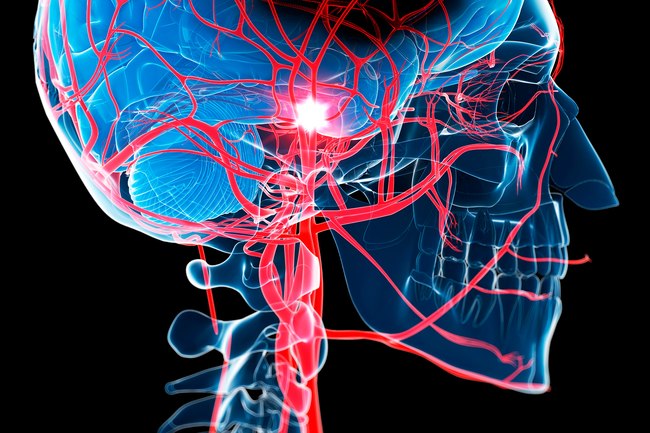A migraine is more than just a headache. It can be frequent and have other symptoms like vomiting, nausea, and extreme sensitivity to sound and light. Some people experience throbbing pain on either side of their head.
What causes migraines?
In general, migraine headaches are a result of abnormal activity of the brain, which could be triggered by certain things around you. However, the exact cause of the chain of headaches is yet to be unveiled.
Medical practitioners have a common belief that migraine attacks start in the brain and they comprise nerve pathways and chemicals. This affects the blood flow in the brain and the tissues in the surroundings.
People affected by migraines
According to a report by the National Headache Foundation (NHF), over 37 million people in the United States are affected by migraine headaches. Based on the statistics, we can say that it affects women three times more than men. Besides, as high as 70% to 80% of the people affected by migraines also have other family members affected by these attacks.
People who have classic migraine issues typically experience an aura (a visual disturbance) before they have a migraine episode. These people witness jagged light images or outlines of lights. Unfortunately, these classic migraines are much more severe as compared to a common migraine attack.
What triggers migraines?
Migraine headaches commonly appear in a pretty wide age group of 10 to 45 years. However, these episodes can also start any time in people and may even run in families. Women (not all) also have migraine attacks during pregnancy.
The following can be some migraine triggers for some people, if not all:
- Caffeine withdrawal
- Perfumes or odors
- Alcohol consumption
- Hormone changes in women during the menstrual cycle or when using control pills
- Bright lights and loud noises
- Affected sleep, especially in the absence of enough sleep
- Smoking, and even passive smoking
- Heavy exercise or any other physical stress
- Stress and anxiety
- Skipped/missed meals
Apart from some lifestyle changes and physical stress, some foods can also trigger migraines in people. Here are some common ones:
- Dairy products, including some types of cheese
- Peanuts and some other nuts too
- Foods that contain MSG (monosodium glutamate)
- Meats that contain nitrates (salami, hot dogs, bacon, etc.)
- Processed and/or fermented pickles.
- Some marinated foods
- Fruits like banana, avocado, and some citrus fruits
- Chocolate
- Onions
- Foods containing tyramine, such as smoked fish, red wine, certain beans, aged cheese, chicken liver, etc.
Common migraine remedies
If you’re having a mild migraine attack, you can try doing the following at home or in the office to relieve the pain:
- Look for a quiet, dark room and lie down there to relax
- Try to gently massage your scalp or ask someone to help you with it
- Get a cold cloth and place it around your neck or forehead
These are some quick and home-based remedies that you can try to relieve a mild migraine attack.
When to see a doctor for migraines?
While you don’t need to see a doctor every time you have a migraine attack, you might need to call one if you experience any of the signs or symptoms listed below:
- Changed severity, frequency, or any migraine feature that you commonly experience
- A sudden headache due to coughing, bearing down, sneezing, straining while using the toilet
- You get a new headache that keeps progressing and lasts for days
- Physical weakness that won’t go even after a headache
- Unexplained loss in body weight
- Migraine headaches that last over 72 hours
You might need to visit a hospital seeking emergency help in case of these symptoms:
- Seizure
- Stiff neck or fever along with a headache
- You’re having your worst headache with a sudden onset
- One side of your body gets paralyzed
- Your consciousness level has decreased
- Headache associated with trauma or leads to loss of consciousness
Conclusion!
A migraine is not a regular headache and you must understand that. Simply avoid foods and activities that can cause such throbbing pain in your head. Every time you get a migraine attack, you must seek help and try out some basic home remedies to suppress the pain. In case of severe pain, see a doctor immediately.

Leave a Reply